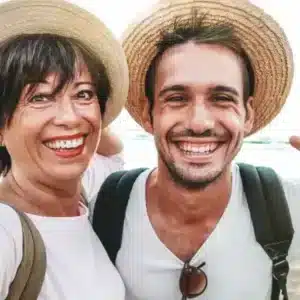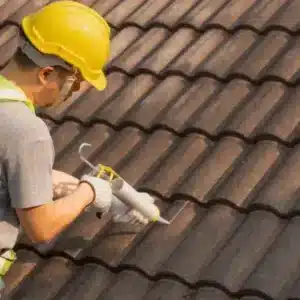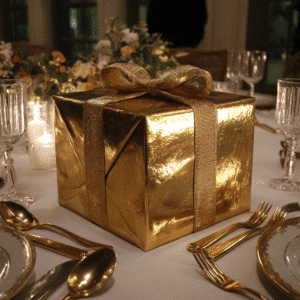I didn’t invite my dad to my graduation. He called, voice cracking, and asked if he could come. I said no. An hour later my grandmother showed up on my porch, so angry the railing rattled under her grip. She told me I’d gone too far, then left me with a silence that lasted for days.
When it finally broke, it arrived in my mailbox: a heavy envelope, old photos, a short note in her looping hand, and a sheet of lined paper worn thin at the creases. At the top she’d written, “You need to remember.” Beneath it: “Before you lock someone out forever, know the full story. This is your father’s side.”
I almost threw it away. Sympathy for the man who walked out when I was ten? Who missed three birthdays and an amusement park trip like they were appointments he could reschedule? He didn’t get a seat at my ceremony. He didn’t get a paragraph in my day.
But my fingers were already unfolding the paper.
It was dated 1999. “Dear Ma,” it began, in my dad’s uneven print. “I messed up. I know that. I’m scared I’m turning into him. I didn’t mean to yell. I didn’t mean to slam that door. I don’t know how to love right when I never saw it.”
The word “yell” snagged me. I could still hear cabinet doors shuddering and my mother’s quiet crying. I’d filed that night under He didn’t care. The letter nudged it toward He didn’t know how.
I set it aside and flipped through the photos. My dad with me on his shoulders, both of us laughing so hard our eyes disappeared. My dad asleep on the couch, toddler-me starfished on his chest. One I’d never seen: my dad in a hospital hallway, eyes red, clutching a bouquet. On the back, in Grandma’s cursive: “He showed up that day. You were too angry to let him in.”
Something inside me clicked—not a floodgate, just a hinge.
That night I called my mom and asked, for the first time, to tell me the truth. She was quiet for a long moment. “You really want it?” she asked. I did.
“It wasn’t just fights,” she said. “It was fear. I was afraid of raising you in chaos. He was afraid that staying would make him worse. Leaving was the only way he knew to get help. He started therapy after the divorce. He tried. By the time he changed, you’d already decided who he was.” She paused. “He wasn’t a monster. He just didn’t know how to be a dad yet.”
The next day I texted him: Can we talk?
He responded in minutes. We met at a café near campus. The gray in his hair startled me. He looked older and smaller, but his eyes lit the way they always had when he saw me. “Hey,” he said. “Hi,” I answered, and we sat there, two people with years between them, not sure where to start.
“You didn’t want me there,” he said finally. “Yeah.” He swallowed. “I get it.” “Do you?” I asked—not as a challenge, but as a question I needed to lay between us: Do you understand the shape of the hole you left?
He leaned forward, forearms on the table. “I know I failed you. You needed a dad who showed up every time, not sometimes. I hate that I wasn’t him. But I never stopped wanting to be your dad.”
I’d built a home out of anger—familiar, drafty, mine. Stepping out of it felt like breaking a lease without knowing where I’d sleep next. “I thought you left because we weren’t worth staying for,” I said.
He winced. “I thought that about my own dad. It’s scary how pain repeats if you don’t put a hand up to stop it.” We talked for an hour. He didn’t try to sand down the rough parts. He didn’t make excuses. He just listened. At the end he stood and said, “You don’t have to forgive me. Not today. Maybe not ever. But I’ll be here now, if you want me to be.”
He left. I didn’t cry until later, alone, holding the photo of us laughing.
I let a few weeks pass. Then my roommate’s parents came to help her pack. Her dad carried boxes up three flights like gravity owed him a favor. At one point he hugged her and said, “I’m proud of you, baby.” Something in me cracked along a line I hadn’t known was there.
That night I called my dad. “You still want to be here?” “I do,” he said, like he’d been waiting with his coat on.
So I opened the door an inch at a time. He came by once a week. Sometimes we walked. Sometimes we sat on a bench and said nothing. He didn’t push. He showed up. Slowly, it stopped feeling like a performance and started feeling like a rhythm.
On my birthday he handed me a card with the photo of me on his shoulders tucked inside. He’d written, “Thank you for the second chance.” I hugged him, and it felt real, not like trying on someone else’s story.
Then life tested what we were building. Six months later my mom got sick—not sirens-at-midnight sick, but sick enough to need help. Finals were looming. I didn’t know how to juggle any of it. My dad stepped in without being asked. He drove her to appointments, picked up meds, made soup she pretended not to like but finished anyway. They didn’t rewind the past; they didn’t even try. They just found a workable tempo. One night I walked in to find them laughing at an old, harmless memory, and the world tilted toward a kinder axis.
After she recovered, my mom said, “Maybe people can change. If they’re given room to.” I nodded because I had watched it happen in real time.
He never became perfect. He still sent text messages without punctuation and sometimes forgot to hit “send.” Crowds still rattled him. But he kept showing up. At my grad school orientation he sat in the front row, grinning like the flash itself, his camera clicking too much and not enough.
A year later I got a job offer in another state—the kind of opportunity that tastes like equal parts dream and nausea. I called him. “I don’t know if I can do it.” “You can,” he said. “I’ll help you pack.”
On my last night in town, he handed me a journal—the same one he’d written that letter to his mother in years ago. Inside, a final note: “I’m proud of you—not just for what you’ve done, but for the grace you’ve shown. You’re stronger than I ever was. Keep writing your story. Thank you for letting me be part of it again.”
I cried over that page. Not because the past vanished, but because I could finally hold it all at once—the hurt, the effort, the change—and still choose love.
Forgiveness didn’t rewrite our history. It let me read it with my eyes open and decide the next chapter anyway. I didn’t invite my dad to my graduation. But I invited him back into my life. That made the difference.
Sometimes people aren’t ready to be who we need when we need them most. That doesn’t excuse the damage. It doesn’t obligate a reunion. But with time, honesty, and steady effort, even deep wounds can begin to close. Forgiveness isn’t forgetting; it’s a kind of courage. If you’ve been waiting for a sign to reach for a hard conversation, maybe this is it.





